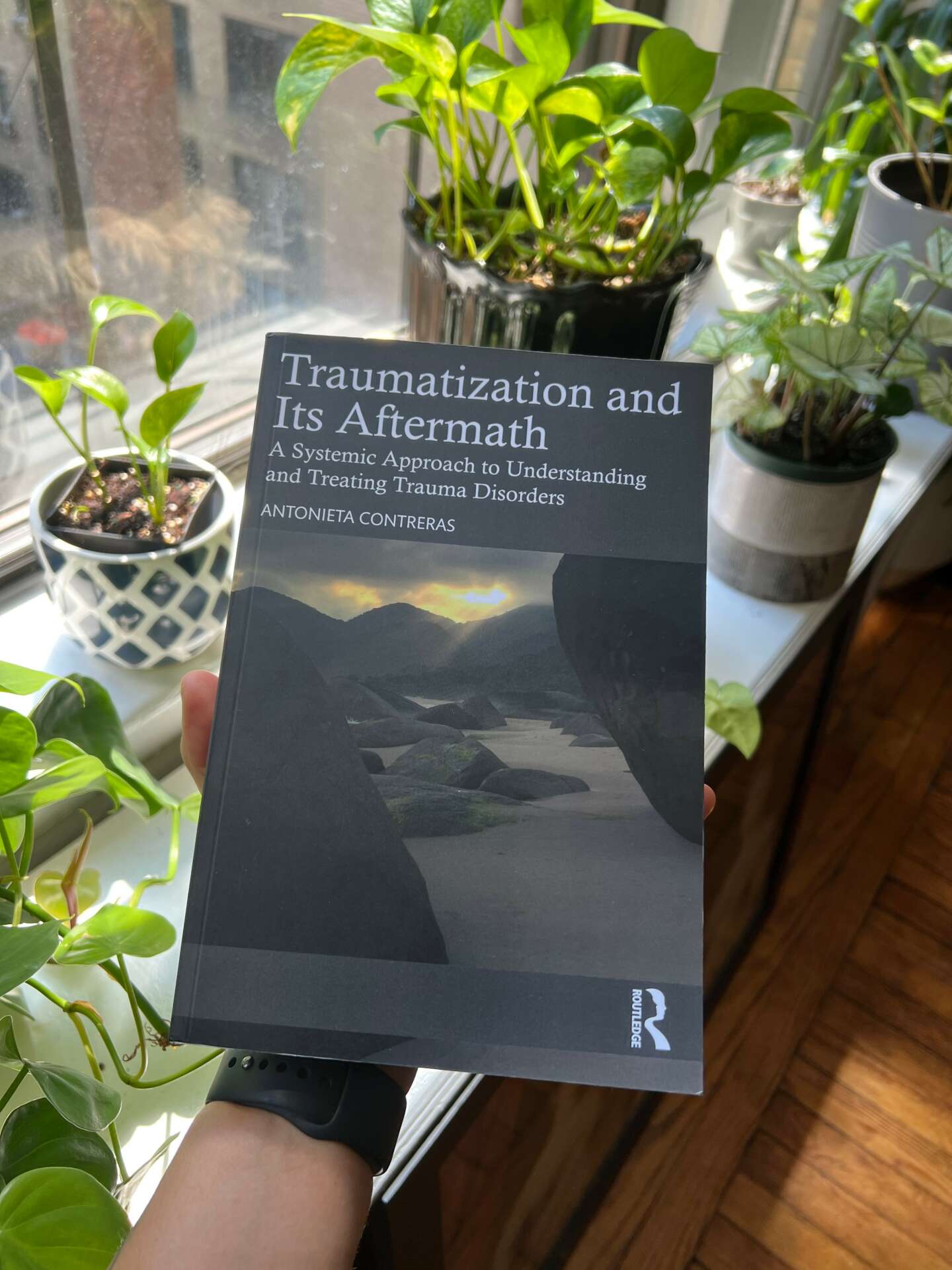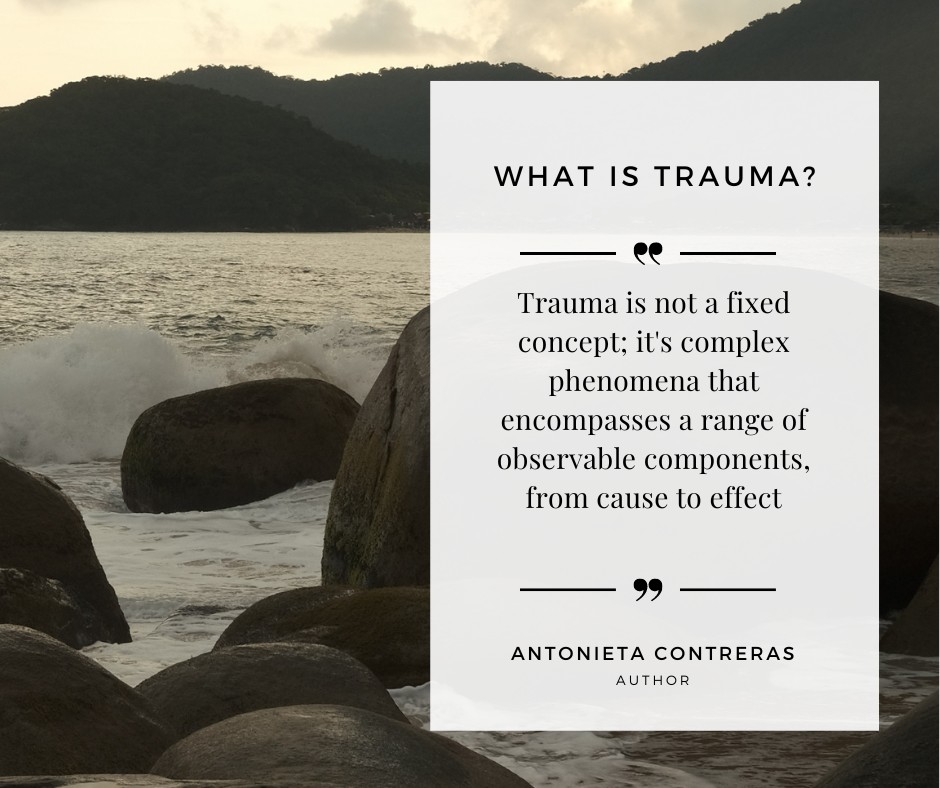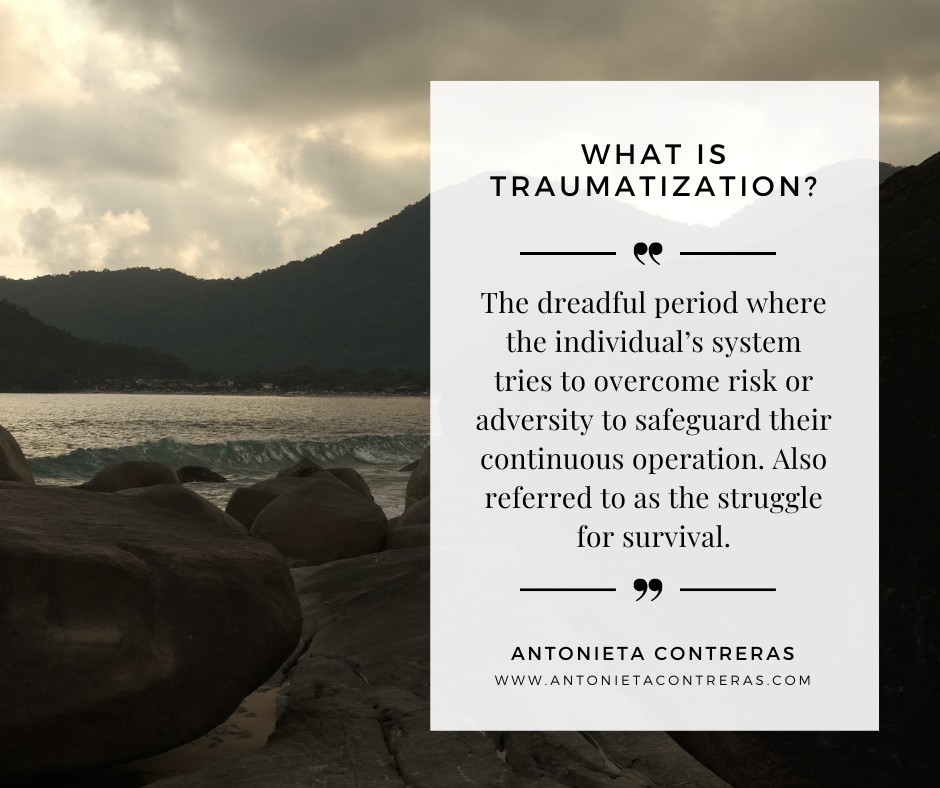We caught up with the brilliant and insightful Antonieta Contreras a few weeks ago and have shared our conversation below.
Antonieta, thanks for joining us, excited to have you contributing your stories and insights. Over the course of your career, have you seen or experienced your field completely flip-flop or change course on something?
I’m acutely aware that everything is in a constant state of change and evolution. However, in recent years, the pace of change has accelerated significantly, making these shifts even more pronounced. I believe this phenomenon is also taking place in my field. For decades, therapy remained largely unchanged since its creation, but over the last couple of decades, our comprehension of the human psyche has expanded so remarkably that therapy itself is undergoing a complete transformation. Yet, as with any change, resistance inevitably arises. Traditional therapy once focused on exploring one’s past, uncovering dysfunctional patterns, and often relied on the therapist’s interpretations and guidance to help individuals break free from their state of dysfunction. Moreover, therapy often entailed clients engaging in soliloquies until they made connections that offered insights into the motivations behind their actions. Then, therapy evolved into humanism, a collaborative endeavor between therapist and client aimed at empowering the individual, fostering strength, confidence, and agency. Alongside these shifts, the inclusion of trauma in the realm of mental health and the concurrent advancements in neuroscience have brought about even more profound changes. We now understand that our emotional reactions and patterns are a direct result of how our nervous system adapts to circumstances. In the face of perceived threat, there exists no logic, reasoning, or words sufficient to alter the operation of the nervous system, which prioritizes survival.
This evolving landscape has given rise to an unprecedented proliferation of treatment modalities. Every day, people are having realizations that contribute to the ongoing transformation of therapy, inspiring hope for enhanced well-being and progress. Presently, modalities leverage an individual’s strengths as healing agents, utilize movement, breath, or awareness of body reactions to name a few, all in the pursuit of finding more effective solutions. Countless individuals spent years engaged in talk therapy without finding resolution for their distress or dysfunction. However, now we hold greater optimism and are witnessing quicker results.


Antonieta, before we move on to more of these sorts of questions, can you take some time to bring our readers up to speed on you and what you do?
After obtaining a BSc in mathematics and actuarial sciences, I embarked on my career journey as a management consultant. I engaged in developing crucial financial mega systems for the Mexican government and later assumed the role of an investment banker, spearheading the research division and subsequently specializing in mergers and acquisitions. Throughout the years of my children’s growth, I lived across various countries, pursued multiple diplomas ranging from business and non-for-profit management, an art degree, fiction writing, journalism, jewelry design, to gemology, and ventured into diverse business endeavors. However, it wasn’t until I embraced Buddhism that I felt compelled to chart an entirely new professional path. This led me to India, where I immersed myself in the pursuit of the art and science of spiritual healing and contemplative studies before returning to academia to earn my master’s degree in social work. Since then, my life’s mission has been devoted to facilitating healing for others.
The realm of social work proved to be remarkably expansive, profound, and relevant, very aligned to my Buddhist beliefs. My journey led me to work in the psychiatric emergency room of a New York City hospital and later in a mental health clinic in Harlem. In these settings, I encountered firsthand the depths of pain, suffering, dysfunction, desperation, and traumatization that individuals were battling with.
All those clients left an indelible imprint on my soul, propelling me to further my studies repeatedly. I underwent training in various schools of thought, modalities, and interventions, obtaining certifications in areas such as Gestalt, Trauma Studies, Neurofeedback, and EMDR, to name just a few. It became increasingly evident to me that traditional therapy was often falling short in effectiveness. Fueled by this realization, I became a part of an outreach group, dedicated to spreading awareness about the crucial role of trauma within society and the significance of neurobiology in comprehending human behavior.
My journey led me to teaching, supervising, and ultimately chairing the curriculum committee of a trauma studies program that I myself graduated from in New York City. Throughout this time, I continued to amass learnings from my clinical practice, further training, observations, and the invaluable lessons gathered from my clients. I also ventured into the realm of sex therapy, aiming to deepen my understanding of the intricate link between sexuality, traumatization, and mental well-being. Lately, I delved into psychedelic integration to explore the possibilities of this innovative approach to healing.
Taking advantage of the Covid-19 lockdown, I felt compelled to respond to questions about mental health and trauma at Quora, a social question-and-answer website and online knowledge market. Rekindling my love for writing, I found the time to write my debut book. Titled Traumatization and Its Aftermath, it reflects the knowledge I’ve gained during this phase of my career and the depth of my previous experiences across diverse cultures and professional domains. It also encapsulates the shifts I alluded to earlier—specifically, the understanding that therapy must evolve and adapt to our fast-changing world.


We’d love to hear a story of resilience from your journey.
I have experienced my fair share of traumatization in life, and as I mention in my book, my system dealt with many difficulties before reaching a breaking point. So, let me share with you the type of resources I found useful to develop resilience and endure adversity. Primarily, I’ll explain how I managed to break free from a trauma bond and use it to become stronger. I’ll share this story to contribute to dissolving the stigma of trauma, similar to what I do in my book.
I was in an unhealthy relationship and developed a trauma bond. Due to the nature of trauma bonding, I can tell you that even at the peak of my suffering, I could easily convince anyone that what kept me in the relationship was a product of love. I had even convinced myself that it was not just simple love – it was unconditional love! I’ll tell you more about what I discovered later on.
As I explain to my clients, a trauma bond is a specific type of relationship or dynamic that develops between two people, where one is abusive/neglectful, and the other accepts the maltreatment as a way to prove their capacity to be useful, helpful, or worthwhile. This dynamic leads them to endure adversity with understanding and dedication. A trauma bond functions as a very strong coping mechanism that creates a deceptive sense of security. Nevertheless, trauma bonding demonstrates resilience because the person in the trauma bond resists surrendering or feeling defeated to avoid reaching a point of hopelessness in an inescapable situation.
Still, I frequently hear from my clients that they’ve become addicted to their partners or their relationships. It seems that the “addiction” people feel (as I did) stems from the impact of stress hormones and neurotransmitters on our system. The anxiety triggered by the instability within a relationship keeps the nervous system in a constant state of alertness, striving to avoid collapse, while the sense of relief experienced when receiving sporadic moments of attention and validation is akin to an alcoholic finally obtaining a drink. Imagine that!
In my case, accepting that I was entangled with a person who both caused my distress and temporarily alleviated it was far from easy. Since I was completely ignorant about this specific phenomenon, I didn’t have sophisticated interventions to become emotionally stronger. How did I get out? What I found was my golden nugget!
When I was told that what I had experienced was a trauma bond, the question of how much of it was real love, and how much was just the grip of an emotional trap, lingered for a while. How could it be possible that all the good feelings I had were “false”? Even when I learned that a trauma bond is based on survival and coping, I still vividly recalled the strong positive emotions I had experienced during the relationship.
After deep reflection, I came to the conclusion that I held onto those positive emotions because they were the best way for me to stay hopeful. The production of “feel good” chemicals like serotonin, dopamine, and oxytocin is essential to avoid depression and illness. Believing I was in love served as a shield against losing hope and motivation, preventing me from tumbling into despair and helplessness.
Looking back, I can see that it wasn’t just me fooling myself into love; it was truly embracing the invigorating energy that love offers. But it goes deeper than it sounds. What I discovered was that the idea that connection was tied to a specific person is a false premise. I realized that what I needed was the feeling itself, not the person or the relationship. The positive effects of connecting to love without an object became essential nourishment to build resilience and strength. Who would have thought that love doesn’t require a target?! Love, as an energy, can feed us from within, nurturing and healing us in ways that science may not be able to explain.


If you could go back, would you choose the same profession, specialty, etc.?
My professional journey can be divided into three distinct phases. Initially, I worked as a management consultant and an investment banker, marking the beginning of my career. In the second phase, I explored my artistic and creative side, engaging in various pursuits such as painting, gemology, fiction writing, and jewelry design. Finally, I transitioned into the role of a healer and psychotherapist, where I find fulfillment in my work today.
Sometimes, I contemplate what might have happened if I had pursued a career in therapy earlier. However, upon reflection, I constantly remind myself that the diverse array of practices in my previous phases significantly broadened my understanding of the human experience and equipped me to be a better clinician. I am deeply appreciative that my professional paths eventually led me to delve into the realm of trauma studies.
At the beginning of my career as a clinician, I faced the daunting challenge of assisting numerous individuals grappling with trauma, despite lacking the proper skills. There are times when I find myself yearning to revisit my past clients armed with the healing skills I have since acquired, with the hope of providing them with better support. While I genuinely cared about their well-being, I acknowledge that I lacked the necessary preparation to offer them the level of support they truly needed. That experience served as a profound realization that helping individuals navigate and recover from trauma extends beyond intuition or academic training. While some practitioners might assume that techniques effective for addressing other mental afflictions are equally applicable, working with the intricacies of the nervous system demands a more comprehensive approach than verbal communication alone.
All these challenges have led me to where I am today. Therefore, I believe I made a wise choice in my journey, culminating in a destination I have always inherently belonged to. I arrived at this phase at precisely the right time, fully prepared to embrace it.


Contact Info:
- Website: https://www.antonietacontreras.com/
- Instagram: https://www.instagram.com/antonietacontrerastherapist/
- Facebook: https://www.facebook.com/antonieta.contreras.9
- Linkedin: https://www.linkedin.com/in/antonieta-contreras/
- Twitter: https://twitter.com/AntonietaCont10
- Youtube: https://www.youtube.com/@antonietacontreras5831/featured
- Other: https://www.quora.com/profile/Antonieta-Contreras-1/ https://www.nycounselingservices.com/ https://contrerasantonieta.medium.com/
Image Credits
All the pictures are taken by me


